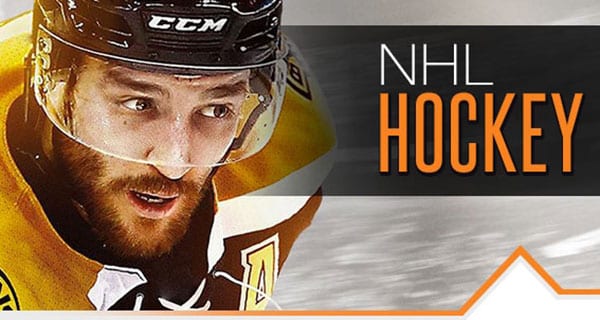 “Can do, can do, this guy says the horse can do.” – Guy & Dolls
“Can do, can do, this guy says the horse can do.” – Guy & Dolls
How forbidden was sports betting in society? Just ask Pete Rose. Even though Major League Baseball’s all-time leader in hits never bet against his own team, Rose was given a lifetime suspension for making wagers on his sport.
So there must be a bitter irony for the suspended-for-life MLB great in the news that the National Hockey League is going mainstream with MGM Hotels in pro sports wagering.
As Rose discovered, woe to any athlete caught consorting with gamblers. The Black Sox scandal of 1919-20 – where players took bribes to throw a World Series – forever put betting on games beyond the pale.
While betting houses have been sponsors in European sports, the concept of leagues in North America aligning with sports books is new.
Until now.
The first incursions were the deals signed in 2014 by leagues with daily sports fantasy sites like DraftKings. (In these sites, bettors don’t wager on games. They bet on a player’s production in daily or weekly contests.) To protect their brands, leagues took equity positions in such companies with partnership arrangements.
But the concept of traditional parimutuel betting on games even as they take place in an arena or stadium was always the inevitable end game.
Why?
The casino industry in America estimates that the the NHL could take in $216 million a year from its gambling connections.
Last year’s debut of the Vegas Golden Knights was the thin edge of the wedge, with active betting onsite during games as the Knights surprised everyone with a berth in the Stanley Cup Finals. (The National Football League’s Raiders move to Vegas in 2020.)
The game changer was the U.S. Supreme Court decision early this year, striking down in the Professional And Amateur Sports Protection Act, which prohibited legal gambling anywhere but Nevada. Suddenly, any state that wanted into the betting business – and the profits – was permitted to create laws to allow for betting houses and online sites.
(In Canada, there has been legalized betting on sports through provincial lottery corporations. Offshore betting sites have also been legal and easily available for years.)
On Monday, NHL commissioner Gary Bettman announced that if you can’t beat ’em, join ’em. The league is going with MGM Resorts as the league’s first official betting partner.
The integrity of sport had also been the reason leagues prohibited gambling. But Bettman says, “I don’t worry about the integrity of our players. I think, though, if you’re going to allocate for yourself to run a business on our intellectual property and the performance of our athletes and the platform that we put on for our games, we’re entitled to be involved in that.”
Expect that advertising will soon appear on jerseys as the NHL and its sister leagues embrace the possibilities. In partnership with the massive global betting interests, leagues believe they can better monitor the integrity of their product, getting a little for allowing them to be used for gambling purposes.
(While they say they’ll share insider information with MGM, Bettman said that any injury insider news will remain just that – inside the NHL.)
It would appear that everything is in play in any of the 18 states that have so far taken advantage of the U.S. Supreme Court’s decision to legalize sports wagering. Just one example of the increasing footprint is the New Jersey Devils adding a betting lounge at the Prudential Arena. While there won’t be windows for betting in this lounge it will contain all the other trappings of a sports book: TV monitors, tote boards, betting information, drinks. Fans can make bets on the game, however, by using wagering apps on their phones.
The liberalization of wagering rules coincides with the industry providing a whole new range of product options. A cursory examination of websites reveals the traditional bets, teasers, parlays and other ways to have a stake in the game.
In addition, the explosion in software capability now allows the bettor to keep putting wagers on a live game with rolling odds even as it’s happening.
There is also an active market in trading open wagers. Bettors can find a market for an open ticket, allowing them to leverage their exposure by accepting a small profit or loss on a ticket before it’s decided.
The latest wrinkle is the creation of stock markets for sports teams. Instead of wagering on games, bettors can take a position on the success or failure of their ‘stock.’ Values are established at the start of the season. Depending on the progress or regression of that team, bettors can profit or lose during the season. Trading can continue at any point during games or between contests.
So with governments desperate for revenues, there will be more opportunities than ever to place a wager on your favourite team.
You can bet on it.
Troy Media columnist Bruce Dowbiggin career includes successful stints in television, radio and print. A two-time winner of the Gemini Award as Canada’s top television sports broadcaster, he is also the publisher of Not The Public Broadcaster.
The views, opinions and positions expressed by columnists and contributors are the author’s alone. They do not inherently or expressly reflect the views, opinions and/or positions of our publication.


